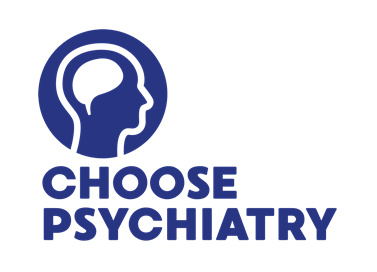Why my role is not just about dementia and slippers
09 October, 2019
Dr Chloe Pickup myth-busts about her role as a resident doctor in old age psychiatry. Resident doctors were formerly referred to as 'trainees' – this blog post was written before this change.

I am an ST5 in old age psychiatry. I’ve worked in inpatients and outpatients and I’m really excited, as this whole year I’ll be doing old age liaison in a large tertiary hospital.
How I got here
Everyone discovers their love of old age differently. Geriatrics had been my favourite placement in Foundation training – I’d relished how complicated the drugs and interactions became with older people, coupled with the pragmatic and important end-of-life discussions that were had.
Becoming a psych trainee I had mistakenly thought I would leave my medicine behind…. but no! My old age placement made me realise that the wealth of knowledge I had acquired about the kidneys, heart, liver and brain were not wasted. In fact, it was needed more than ever in old age.
Life of an old age trainee
Our job in old age is only about 50% dementia – not that I don’t love working on it. It challenges me to be a more holistic doctor and I work constantly with other agencies and teams, which I appreciate, as we’re all on the same side: the patient’s.
After diagnosing dementia, I have to manage what happens next, and that is rarely simple. It’s so rewarding helping people when they are at their lowest, and old age psychiatrists like myself work so closely with families, social services and other care agencies to try to get the best for my patients.
I love working with other specialities and agencies – it has challenged me to be a better doctor and better understand people in the context of the real world we live in. Practitioners have to be aware of the circumstances people live and thrive in, and work with our patients, their families and expectations to find the best solution and outcomes for them.
The rest of my job is seeing patients who have all the same psychiatric disorders we see in other populations. They’re just older, so we have to better understand their bodies, medicines and interactions as well as the reality of a 90 year old taking 30 pills a day, which all have side effects. This often leads to truly frank and open discussions about extending life and the limits of all medicine.
I am constantly amazed by the lives of the patients I work with, their humour, their resilience and their capacity to grow and change, even into their 9th decade.
The next frontier
Going to conferences with neurologists and geriatricians – where the inflammatory theory of illnesses, including dementia and delirium, are debated at length – has shown me what a truly cutting-edge specialty old age is. The brain is the last frontier of the unknown and I am still in the early stages of my career with an exciting future ahead.


